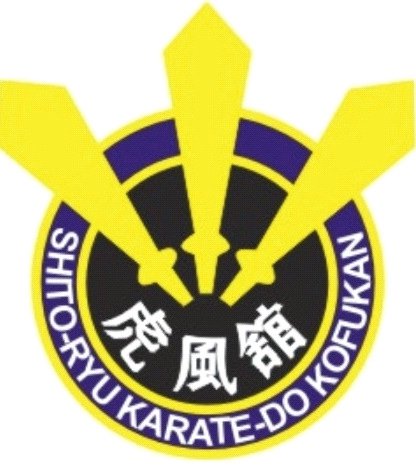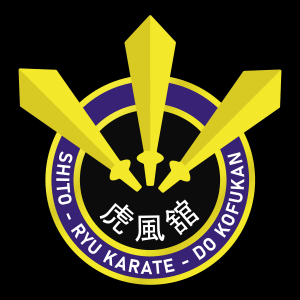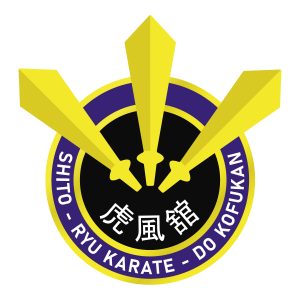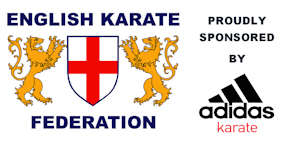Lincoln Kofukan
Started in the 1970’s, we are one of the oldest Karate club in Lincolnshire. Our chief instructor Garry Pettit began training in 1973 and in 2022 was awarded 7 Dan also the title Shihan for Kofukan Shito-Ryu. Garry also teaches Karate for the RAF Martial Arts Association. We have a good relationship with the University of Lincoln, who have their own Kofukan Karate club which we train for National competitions.
Current Instructors:
- Shihan Garry Pettit Nanadan (7th Dan) Rensei
- Nigel Parsons Godan (5th Dan)
- Lawrence Petty Yondan (4th Dan)
- Clive Petty Sandan (3rd Dan)
- Jeff Law Sandan (3rd Dan)
- Mark Longstaffe Sandan (3rd Dan)
What is Kofukan?
Established in the 1970’s by Sensei Tomiyama and Sensei Omi in order to spread Tani-ha Shitō-Ryu Karate-do around Europe. Kofukan International is now a worldwide association, with annual competitions bringing everyone together. Our symbol is the three swords: Shin (mind) Gi (technique) Ta (body), all unified as one.
For more information
For more info email lincolnshirekofukan@gmail.com

SHITO-RYU KARATE-DO KOFUKAN ENGLAND

SHITO-RYU KARATE-DO KOFUKAN INTERNATIONAL
What is Shitō-Ryu?
The first character: “Shi” is derived from the first part of Master Itosu, name from. This style of Karate is known as Itosu or Shuri-te generally performed with straight, sharp movements.
The second character: “Tō” comes from the first part of Master Higaonna, name who taught in Naha, Okinawa. This style is generally performed with circular, soft movements.

The founder of Shitō-Ryu, Master Mabuni, built his style of Karate based on these two schools from which he learned. Shito-ryu therefore practices both of these contrasting methods — primarily through Kata, which can be categorised by their respective origins:
Itosu (Shuri-te) Kata Group
Pin’an (Shodan – Godan), Naihanchin (Shodan – Sandan), Bassai-Dai, Bassai-Sho, Kosokun-Dai, Kosokun-Sho, Shiho-Kosokun, Jitte, Jiin, Jion, Wanshu, Rohai (Shodan – Sandan), Chinto, Chintei, Useishi
Higaonna (Naha-te) Kata Group
Sanchin, Tensho, Gekisai (Ichi & Ni), Saifa, Seienchin, Seisan, Seipai, Sanseiru, Shissochin, Kururunfa, Suparinpai



